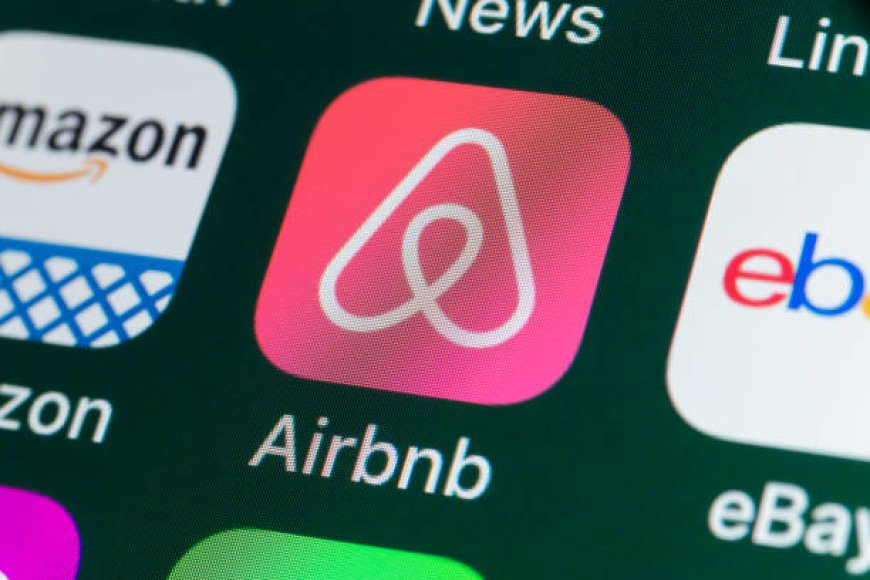Airbnb for First-Time Hosts: How to Navigate Service Fees and Pricing
This guide will help first-time hosts understand the basics of hosting on Airbnb, focusing on how to approach service fees and pricing, so you can optimize your listing and maximize your earnings.

Becoming a first-time Airbnb host can be an exciting opportunity to earn extra income and meet people from all over the world. However, for those unfamiliar with how Airbnb operates, navigating service fees and setting the right pricing strategy can be a bit challenging. This guide will help first-time hosts understand the basics of hosting on Airbnb, focusing on how to approach service fees and pricing, so you can optimize your listing and maximize your earnings.
What Is Airbnb and Why Host on It?
Airbnb is an online platform that allows individuals to list their homes, apartments, or even just a spare room for short-term rentals. Whether you have an extra room or an entire property, Airbnb gives you the flexibility to earn income while offering travellers a unique place to stay.
Hosting on Airbnb opens up a world of possibilities for property owners. Beyond financial gain, hosting lets you connect with travelers, offer personalized experiences, and even showcase your local culture. As a first-time host, understanding what is Airbnb and how it works is essential before diving into the details of pricing and service fees
.
Understanding Airbnb Service Fees
Airbnb service fees are charged to both hosts and guests for using the platform, helping cover operational costs such as customer support, marketing, and maintaining the site. For hosts, Airbnb typically charges around 3% of the booking subtotal, excluding taxes, while guests pay a service fee ranging between 5-15% of the booking amount.
For first-time hosts, understanding these service fees is crucial. Airbnb service fees are automatically deducted from your earnings, so you need to factor them into your pricing strategy. Knowing how much you’ll take home after fees will help you price your listing more effectively, ensuring you still make a profit without overcharging your guests.
How to Set Competitive Pricing
Pricing is one of the most important factors that will determine the success of your Airbnb listing. To attract guests, it’s essential to set a competitive price. A good starting point is to research listings similar to yours in your area to see how much other hosts are charging.
However, don’t just copy other listings’ prices. Consider factors such as your property’s unique features, location, and the time of year. For instance, if your property has a pool or is close to tourist attractions, you can charge a higher rate. Additionally, adjusting prices based on seasonal demand can help you remain competitive and maximize your earnings.
Using Airbnb’s Smart Pricing Tool
For first-time hosts unsure about how to price their listing, Airbnb offers a Smart Pricing tool. This feature automatically adjusts your listing price based on factors like local demand, seasonal trends, and comparable listings. By turning on Smart Pricing, you ensure your prices stay competitive without having to constantly monitor and update them.
However, while Smart Pricing can be a helpful tool, it’s important to keep an eye on how your listing performs. Some hosts find that Smart Pricing undervalues their property, especially during peak times. As a first-time host, you may want to experiment with Smart Pricing and manual pricing to see what works best for you.
Managing Additional Fees
In addition to nightly rates, Airbnb allows hosts to charge additional fees such as cleaning fees and extra guest fees. Cleaning fees help cover the cost of preparing your space for new guests, while extra guest fees apply when you host more than your property’s standard occupancy.
First-time hosts should carefully consider whether to charge these additional fees. While cleaning fees are common and often expected by guests, overcharging for extra guests can discourage bookings. Make sure any additional fees are reasonable and clearly communicated in your listing.
Discount Strategies for First-Time Hosts
Offering discounts can be an effective way to attract your first few guests. Airbnb allows you to offer discounts for weekly or monthly stays, as well as provide custom discounts for specific dates or guests. These promotions can help boost your listing’s visibility, especially when you’re just starting.
Consider offering an introductory discount when you first list your property to encourage bookings and gather reviews. Once you’ve built up a few positive reviews, you can gradually adjust your prices. Keep in mind that a strong reputation can justify higher rates down the line.
Dealing with Last-Minute Bookings
Last-minute bookings can be both a challenge and an opportunity for Airbnb hosts. To fill up empty dates on your calendar, consider offering discounts to guests who book within a short time frame, such as within 24 hours of arrival.
First-time hosts can benefit from accepting last-minute bookings, especially if they’re trying to increase occupancy quickly. However, make sure you’re prepared to handle these bookings logistically. Setting up automated check-in instructions or using a lockbox can make the process smoother and reduce stress for both you and your guests.
Handling Long-Term Stays
Long-term stays, typically those lasting a month or more, can be an attractive option for first-time hosts looking for consistent income. Airbnb allows you to offer discounts for long-term bookings, which can help you secure guests who need extended accommodations, such as business travelers or students.
Before offering long-term stays, make sure your property is equipped for longer-term guests. Consider offering amenities such as laundry facilities, extra linens, and kitchen supplies. Additionally, keep in mind that long-term stays come with different challenges, such as maintaining guest satisfaction over time and managing wear and tear on your property
Reviewing Your Earnings and Adjusting Pricing
Once you’ve hosted a few guests, it’s important to review your earnings and adjust your pricing strategy if necessary. Airbnb provides detailed analytics on your listing’s performance, including occupancy rates, average nightly prices, and guest reviews.
As a first-time host, don’t be afraid to tweak your pricing based on your experience. If you’re getting consistent bookings, consider raising your rates slightly. On the other hand, if bookings are slow, you may need to lower your prices or offer promotions. Regularly reviewing your pricing strategy will help ensure your listing remains competitive and profitable.
Conclusion
Navigating service fees and pricing as a first-time Airbnb host may seem daunting at first, but with the right approach, it’s possible to maximize your earnings while providing a great guest experience.
By understanding what is Airbnb , how service fees work, and how to set competitive pricing, you’ll be well on your way to hosting success. Always remember to monitor your listing’s performance and make adjustments as needed to ensure long-term profitability.
What's Your Reaction?














![Noots Focus Reviews [Truth Exposed 2025]!](https://news.bangboxonline.com/uploads/images/202501/image_430x256_678e3b94881a1.jpg)











